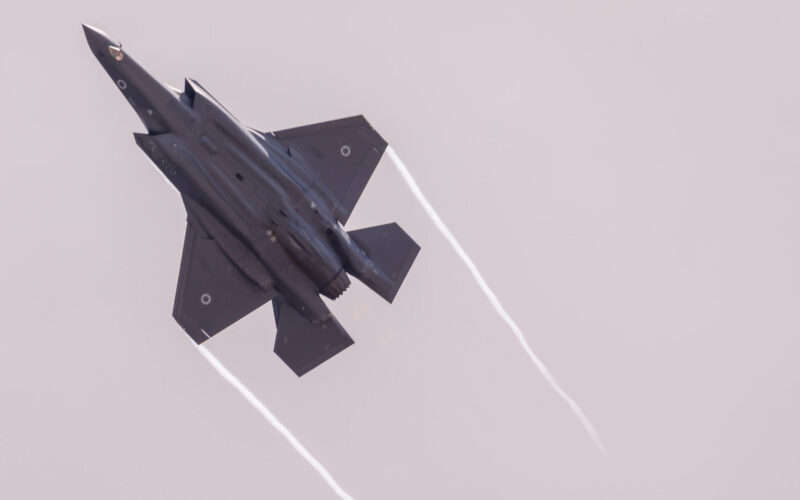An F-35I “Adir” of the Israeli Air Force was spotted during a low-altitude flight in Lebanon on January 25, 2021. The picture was shared on social media by the Lebanese militant group Hezbollah.
6 طائرات من نوع F-15. إسرائيلية معادية كانت تحلق في الأجواء اللبنانية لساعات .#عدوان_على_السيادة pic.twitter.com/td3GTGhtgb
علي شعيب (@alishaib1970) January 25, 2021
While no official explanation was given to justify the presence of the F-35I over Lebanon, the activity of the Israeli Air Force has reportedly increased in the region since the beginning of 2021, with regular violations of Lebanese airspace to carry out strikes in Syria and Iraq.
On the night of January 12 to 13, 2021, SANA, the Syrian state news agency, reported Israeli raids targeted arms depots in the Deir al-Zour and Albu Kamal regions, eastern Syria. According to the British NGO Syrian Observatory for Human Rights, at least 57 pro-Damascus fighters, most likely Syrian and Iranian, were killed in those strikes.
The same day, a retired general of the Lebanese military, Khalil Hélou, commented on Israel’s strategy to Beirut-based newspaper L’Orient-Le Jour. “Low-altitude flights have two uses: on the one hand, they photograph and carry out electronic surveillance; on the other hand, they make it possible to send a message of intimidation to Hezbollah: “We can destroy you and Lebanon’,” Hélou explained.
Maintaining Israel’s “Qualitative Military Edge”
The Israeli Air Force was the first operator to use the F-35 in combat, even before the United States military. In May 2018, the Middle-Eastern country announced it had used the “Adir” (Mighty One) to carry out strikes in Syria against Iranian positions and in neighboring Lebanon against Hezbollah insurgents.
Israel has been particularly concerned to maintain its technological superiority in the air over its direct neighbors. When the Emirati government sent Trump’s administration its official demand to acquire a number of F-35A stealth fighters, Israeli Prime Minister Benjamin Netanyahu protested, fearing the acquisition could disturb the power balance in the region.
Since 2008, any proposed U.S. arms sale in the Middle East must include a notification to Congress with a determination that the contract would not affect Israel’s “Qualitative Military Edge” over its potential adversaries.
While a deal between the United Arab Emirates and the United States was eventually signed hours before Joe Biden was inaugurated as President, Secretary of State Antony Blinken promised the new administration would have to “take a hard look” at the F-35 sale.

